14 Ways Led Zeppelin Changed the World Forever
When Led Zeppelin formed in London in 1968, the music world didn’t quite know what had hit it. Jimmy Page on guitar, Robert Plant on vocals, John Paul Jones on bass and keys, and John Bonham on drums came together after the breakup of the Yardbirds. Over the next decade, they reshaped the business, the concert experience, and what it meant to be a band. Here are 15 specific, lasting ways they changed the world forever.
They Ignored Singles and Still Dominated Charts

Credit: Wikipedia
While radio hits drove most careers in the 1960s and ’70s, Led Zeppelin had no interest in playing the singles game. They released only 10 official singles in the U.S., and most were issued without the band’s involvement. “Stairway to Heaven,” arguably their most iconic track, was never released as a single during the band’s lifetime, yet it became one of the most-played songs on FM radio.
They Turned Live Shows Into Blockbuster Events
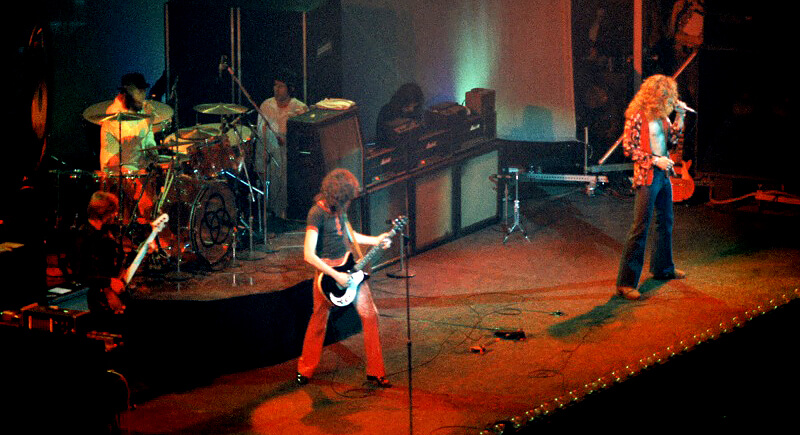
Credit: Wikimedia Commons
Led Zeppelin redefined the rock concert as a spectacle. In 1973, their performance at Tampa Stadium drew over 56,000 fans, which surpassed The Beatles’ previous record at Shea Stadium. They didn’t use opening acts, rarely relied on advertising, and sometimes announced shows via radio alone. Despite this low-key approach, their 1977 U.S. tour grossed over $10 million—an unheard-of figure at the time.
They Refused TV Appearances After 1970
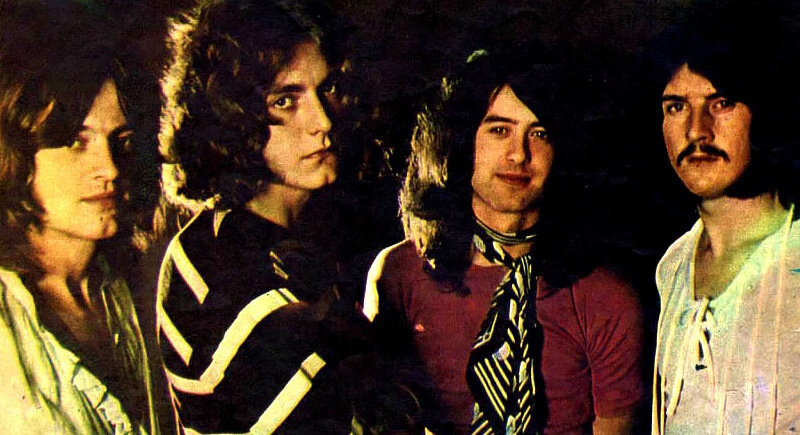
Credit: ebay
The band’s last major TV performance was on Danish TV in March 1969, followed by a few other early appearances in Europe. However, after experiencing poor sound quality and a lack of control over their presentation, they stopped appearing on television altogether. Manager Peter Grant famously rejected offers, believing television diluted their music’s power.
They Reshaped Artist Contracts Forever
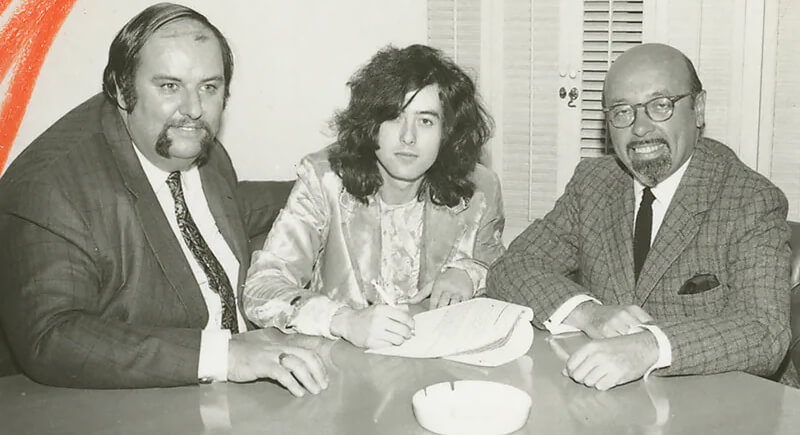
Credit: Reddit
When Led Zeppelin signed with Atlantic Records in 1968, they secured a then-record advance of $143,000 and unprecedented creative control. According to former Atlantic executive Phil Carson, the band had final say over artwork, track selection, and mastering. Jimmy Page personally handled the mixing of albums, refusing interference from label executives. That level of autonomy changed how future artists negotiated contracts.
They Helped End the Opening Act Tradition
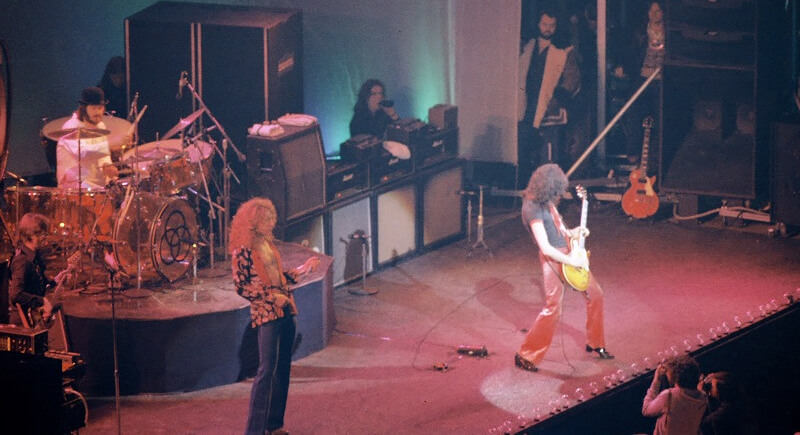
Credit: Wikimedia Commons
By 1973, Led Zeppelin had reached a point where they no longer needed support acts. Their shows ran for up to three hours, filled with improvisation and extended solos. They chose to perform alone. Promoters initially resisted the idea, but fan demand won out. It became standard for major acts, like Bruce Springsteen, Prince, and later U2, to perform without openers.
They Created the Modern Merchandise Model

Credit: Threads
Led Zeppelin and their manager, Peter Grant, revolutionized merchandise profits. Instead of letting promoters handle T-shirt and souvenir sales, Grant ensured the band received a large cut, or exclusive rights, at each venue. By the mid-1970s, this model brought in millions in additional revenue.
They Reinvented the Role of the Drummer
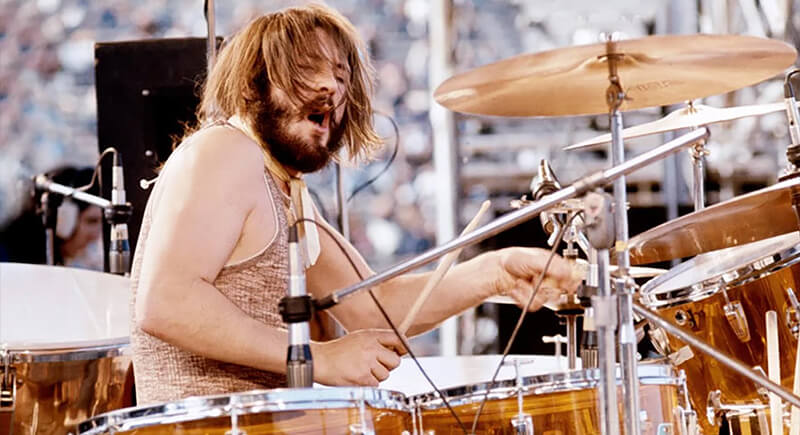
Credit: flickr
Before John Bonham, drummers kept time. His thunderous playing on tracks like “When the Levee Breaks” and “Kashmir” added not just rhythm but muscle and emotion. His “Moby Dick” drum solos sometimes stretched beyond 20 minutes and featured barehanded playing. Bonham’s influence is still felt in rock and metal, where drums often drive a song’s identity rather than sit in the background.
They Turned the Private Jet Into a Rock ‘n’ Roll Icon

Credit: Wikipedia
Led Zeppelin didn’t invent rock excess, but they helped define its aesthetic. Their customized Boeing 720B, nicknamed The Starship, featured a lounge, bedroom, and fireplace. During their 1973 and 1975 U.S. tours, they used it to fly between stadium gigs, avoiding hotels and airports. Photos of the band posing on the steps of The Starship became part of their legend and helped romanticize the “rock gods in the sky” image that’s still replicated today.
They Proved That Concept and Image Could Coexist With Musical Power
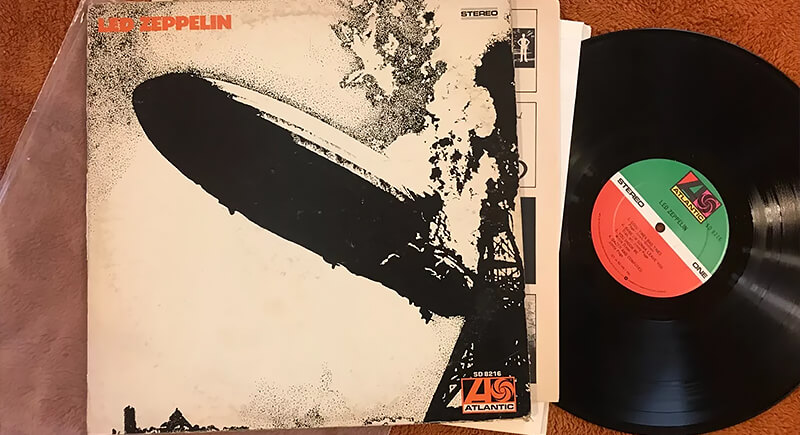
Credit: ebay
Led Zeppelin’s albums turned up in record bins with no band name and, sometimes, not even a title. Their fourth record? Just four runes on the cover. Fans still snapped it up by the millions. Cryptic lyrics and cover art became a signature move, but none of it ever distracted from the sound. If anything, the mystery pulled people in.
They Introduced Global Musical Influences to Rock

Credit: Reddit
Led Zeppelin pulled from blues, yes, but they also incorporated sitars, Moroccan rhythms, and Indian scales. Jimmy Page’s use of alternate tunings and Eastern modalities, like on “Black Mountain Side” and “The Rain Song,” brought non-Western sounds into hard rock. Their willingness to explore other traditions influenced later artists like Peter Gabriel, Talking Heads, and eventually the world music movement in pop and rock.
They Popularized the Epic Song Structure
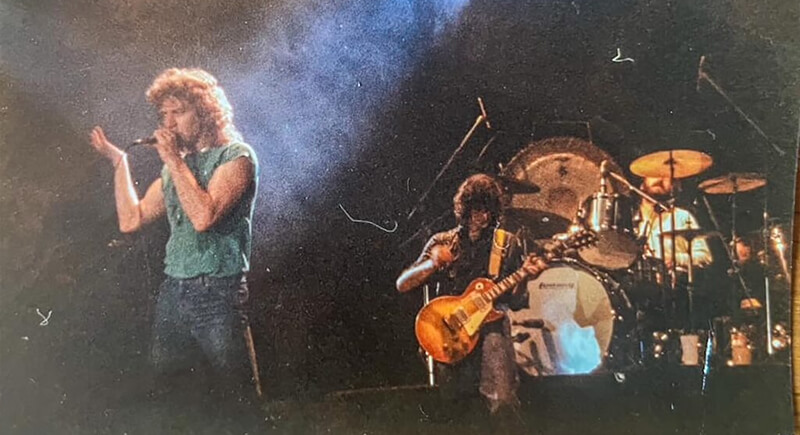
Credit: ledzepnews
Their success made long, dynamic tracks more acceptable to labels and fans alike. Radio hits typically stayed under four minutes, but Zeppelin routinely ignored that. “Achilles Last Stand” runs over 10 minutes. “In My Time of Dying” clocks in at 11. “Stairway to Heaven,” with its multi-section structure and no chorus, became one of rock’s most iconic songs.
They Sparked a New Kind of Musical Mystery
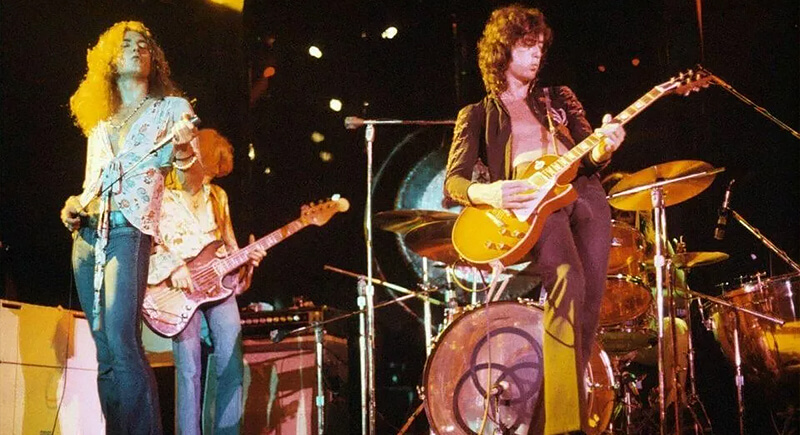
Credit: ebay
While most artists explained their songs and process, Zeppelin let fans fill in the blanks. The band rarely gave interviews, avoided the press, and said little about their lyrics. This silence bred speculation. Were their symbols occult? Was “Stairway to Heaven” secretly satanic? Jimmy Page’s interest in Aleister Crowley only added to the intrigue.
They Made Rock Music Cinematic
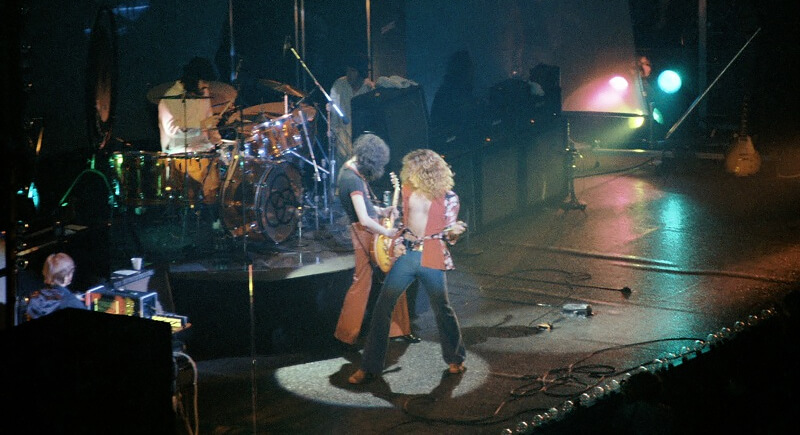
Credit: Wikimedia Commons
In 1976, they released “The Song Remains the Same,” a concert film that combined live footage from Madison Square Garden with stylized fantasy sequences for each band member. Critics were split, but fans made it a cult hit. The idea that a concert film could double as a rock opera caught on. Later projects like “Pink Floyd: The Wall,” “Stop Making Sense,” and even “Homecoming” by Beyoncé owe a creative debt to Zeppelin’s theatrical leap.
They Influenced How Documentaries Are Now Made
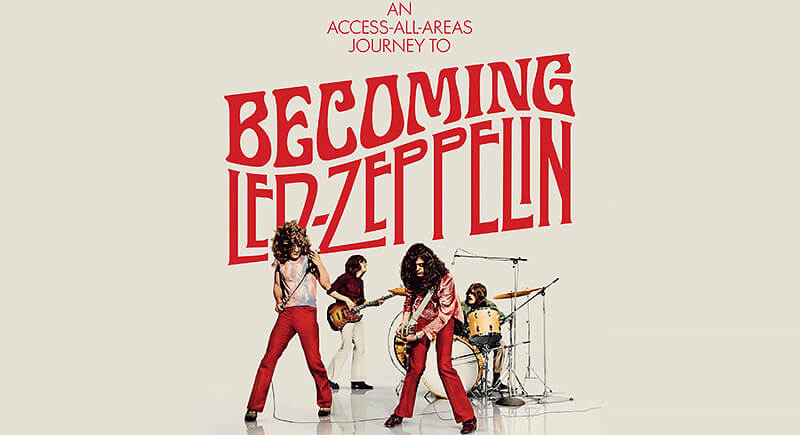
Credit: IMDb
Their 2024 documentary Becoming Led Zeppelin broke with the usual format. This influenced newer rock docs to adopt immersive structures. It avoided narrator voice-overs, featured full performances instead of snippets, and used rare personal interviews and home footage. The film lets music and mood take the lead rather than commentary.
They Showed That Longevity Doesn’t Require Constant Reinvention

Credit: Wikimedia Commons
Many legacy acts try to evolve to stay relevant; Led Zeppelin did the opposite. When Bonham died in 1980, they did not replace him and instead chose to disband. Despite this, their catalog continues to sell, their tracks are constantly rediscovered, and their influence is cited across genres.